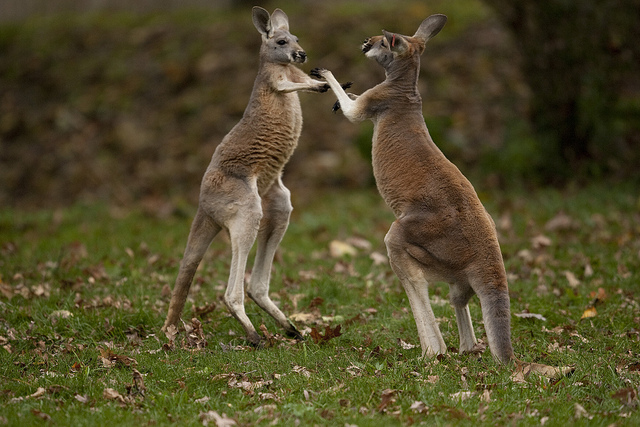 Anthony Bergin is surely right when he channels his inner Alexander Downer to make the case that Australia is more (but also, I think, sometimes less) than a middle power in international affairs. Any real estate agent can tell you why: location, location, location. As the regional hegemon across a huge but underpopulated oceanic expanse at the fringes of Pacific, Indian and Southern Oceans, Australia is the superpower of a region that most of the world never thinks about.
Anthony Bergin is surely right when he channels his inner Alexander Downer to make the case that Australia is more (but also, I think, sometimes less) than a middle power in international affairs. Any real estate agent can tell you why: location, location, location. As the regional hegemon across a huge but underpopulated oceanic expanse at the fringes of Pacific, Indian and Southern Oceans, Australia is the superpower of a region that most of the world never thinks about.
But in some ways we are less than a middle power too. The well-worn foreign affairs boilerplates of Australia being a “clear-eyed” power that “punches above its weight” are of diminishing utility. Yes we are a generous aid spender and a good international citizen, but we sometimes use those qualities to avoid rather than embrace the challenges of leadership. On the tough issues that matter—such as making contributions commensurate with our interests to global public goods like freedom of the high seas or addressing climate change—we often prefer to free-ride rather than lead.
We are indeed important to the relatively small number of people that call our region home. And as an energy powerhouse and US ally we have a relevance to Asia that has grown steadily in recent decades. But we have also developed a timidity in our approach to many regional issues that stands in stark contrast to the more activist and creative policies of earlier decades.
Anthony’s mention of Australia as “pivotal” sent me back to The Pivotal States, a book edited by Robert Chase, Emily Hill, and Paul Kennedy over a decade ago. They used the term to discuss nine states that were “decisive to the fate of their regions” and to crosscutting issues such as population growth, environmental degradation, ethnic conflict, human rights, and economics: Indonesia, India, Pakistan, Turkey, Egypt, South Africa, Brazil, Algeria, and Mexico. No Australia on that list, but then no China either!
Benjamin Reilly is the Dean of the Sir Walter Murdoch School of Public Policy and International Affairs at Murdoch University. Image courtesy of Flickr user Scott Calleja.

